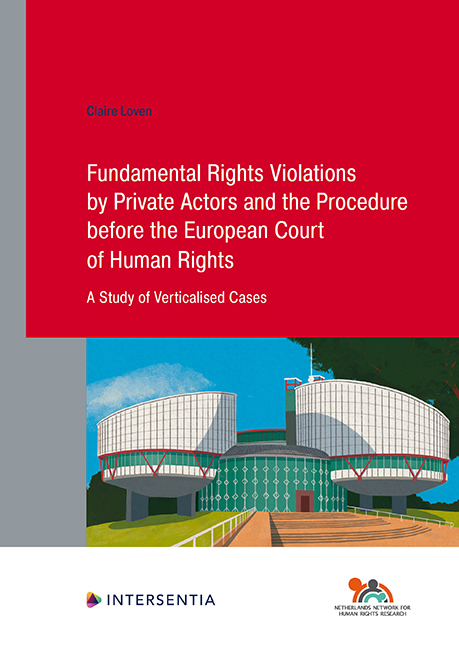 Fundamental Rights Violations by Private Actors and the Procedure before the European Court of Human Rights
Fundamental Rights Violations by Private Actors and the Procedure before the European Court of Human Rights Published online by Cambridge University Press: 29 February 2024
SETTING THE STAGE
The well-known case of Von Hannover (No. 2) ranks highly on the list of seminal judgments of the European Court of Human Rights (ECtHR or the Court). The applicant in this case, Princess Caroline von Hannover, had previously brought domestic proceedings against several publishing companies, seeking to prevent German magazines from publishing, or further publishing, photos of her and her husband's private life. These legal actions were only partly successful as the domestic courts did not grant an injunction against the further publication of all photos. This prompted the princess and her husband to lodge a complaint at the Court, where they complained about the lack of adequate State protection of their right to respect for private life (Article 8 European Convention on Human Rights (ECHR or the Convention)). The Court found that the domestic courts had not failed to comply with their positive obligations under Article 8 as they had carefully balanced the applicants’ right to respect for private life against the publishing companies’ right to freedom of expression. In reaching this decision, the Court formulated a set of criteria that domestic courts have to take into account when balancing the right to reputation and private life of one individual against the right to freedom of expression of another individual.
Although this is what the case is still famous for, it has yet another important feature. What happened in the case of Von Hannover (No. 2) is that a private actor who had first brought a procedure against another private actor before the domestic courts then brought a complaint about State action (on inaction) in relation to the same case before the ECtHR, thereby transforming it from a ‘horizontal’ case (i.e. between private actors) into a ‘vertical’ one (i.e. between a private actor and the State). This ‘verticalisation’ is a logical consequence of the design of the Convention's monitoring system, given that Article 34 of the Convention allows any person, non-governmental organisation or group of individuals to bring an application before the Court regarding an alleged violation of a Convention right by one of the Convention States. Complaints directed against private actors (e.g. individuals or companies) are thus incompatible ratione personae with the provisions of the Convention and will be declared inadmissible.
To save this book to your Kindle, first ensure [email protected] is added to your Approved Personal Document E-mail List under your Personal Document Settings on the Manage Your Content and Devices page of your Amazon account. Then enter the ‘name’ part of your Kindle email address below. Find out more about saving to your Kindle.
Note you can select to save to either the @free.kindle.com or @kindle.com variations. ‘@free.kindle.com’ emails are free but can only be saved to your device when it is connected to wi-fi. ‘@kindle.com’ emails can be delivered even when you are not connected to wi-fi, but note that service fees apply.
Find out more about the Kindle Personal Document Service.
To save content items to your account, please confirm that you agree to abide by our usage policies. If this is the first time you use this feature, you will be asked to authorise Cambridge Core to connect with your account. Find out more about saving content to Dropbox.
To save content items to your account, please confirm that you agree to abide by our usage policies. If this is the first time you use this feature, you will be asked to authorise Cambridge Core to connect with your account. Find out more about saving content to Google Drive.